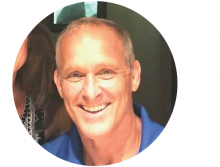
The fact is that most people suffer from a low level of financial literacy. Doctors, executives, finance people and other smart professionals who are very successful with making money in their professional fields are just as likely to have a low level of financial literacy as other people. There is a behavioral bias with most people to believe that because someone has a large capacity to earn very high wages that they likewise have superior financial literacy, but it just isn’t true.
Even among people in the financial world such as accountants, financial analysts, and financial executives, the level of financial literacy for handling their personal wealth is much lower than others believe. These professionals know how to earn large sums of money in their careers, but they are woefully unskilled at growing their personal assets through investments.
There are lots of behavioral reasons for lack of investment knowledge. One reason that I hear most often is that they don’t have the time. Unfortunately, they are often unaware of the huge bite the financial industry extracts from their personal wealth. There is cost for everything in life.
Another behavioral bias is that people at the highest levels of many fields are often insecure about admitting their shortcomings. They may think, “I need to show confidence in my decision making.” This results in making poor decisions outside of their area of expertise. If they don’t know something, there is a tendency to “fake it”. Their careers are built on knowing the answers. Asking for assistance in an unfamiliar area is perceived as showing their vulnerability.
Other issues are that many “generalize” their capabilities. Doctors are particularly subject to this “Achilles Heel”. They may be a great cardiologist, but handling their earnings is another subject. The advantage of having high earnings power in a career is that more funds will be earned on the next paycheck and the weakness can be covered up.
I have always approached areas where I lack knowledge by asking lots of questions and doing significant research. By asking those “dumb” questions, I have been able to build knowledge bases in many different areas. Having this knowledge fosters a much more complete understanding of the subject and mitigates risks. Worrying about the perceptions of others is a sure way to fail to gather essential information and understanding.
Jigoro Kano, the founder of Judo, once said ““To ask may be but a moment's shame, not to ask and remain ignorant is a lifelong shame.”
If someone wants to grow their wealth, the only solution is to take time to grasp the fundamentals of investing. Too many people want to pass that responsibility to someone else. Unfortunately, the cost of having someone else manage their wealth vastly diminishes their returns and increases the broker’s wealth. If many realized the true cost of their actions, they would likely take more of an interest in building their wealth.

